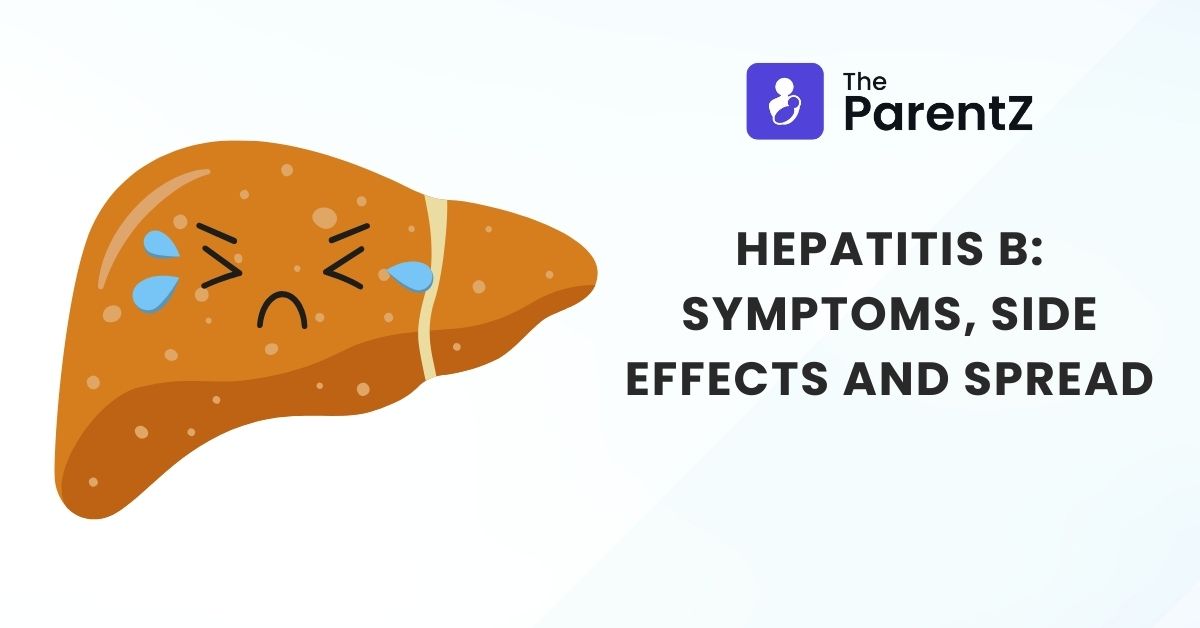When to give a vaccine shot?
Hepatitis B vaccine can be given individually or in combination with other vaccines. A four dose schedule is used in India for Hepatitis B vaccination of children. The first dose is the birth dose which is given within 24 hours of the birth of the child at left thigh. Three additional doses are given at 6 weeks, 10 weeks and 14 weeks. A minimum gap of 4 weeks should be present between any two doses. If any dose is missed in this schedule, it should be given as soon as possible and the next dose should be followed after 4 weeks.
Why should the shot be given?
Hepatitis B vaccine should be given to prevent the future development of Hepatitis B infection. Since no specific treatment is present for this viral infection, prevention is the best strategy to protect your child from Hepatitis B. Complete vaccination leads to development of sufficient antibodies in over 90% individuals. Vaccination is extremely important, not only for Hepatitis B but for every individual disease as prevention is better than cure.
What are the side effects of the vaccine?
Side effects are extremely rare for vaccines but they exist nonetheless. Side effects which may develop with Hepatitis B vaccine are:
- Local reactions may develop. This includes pain, swelling and redness in the area where the vaccine was injected. This is not a cause for concern and it will resolve spontaneously over the next few days.
- Fever may develop post vaccination. Fever can be treated at home itself with antipyretics such as paracetamol being given. The thing to consider during giving your young child medicine is that the dose should be correct according to the age and weight of the child and overdosage has to be avoided.
- Anaphylaxis or an allergic reaction to the vaccine may occur. It can be recognised early by reddening of skin and generalised itching followed by difficulty breathing. A child who develops anaphylaxis should be brought to the hospital immediately. It can be managed by giving a shot of anti-allergic and anti-inflammatory agents immediately.
What is Hepatitis B?
Hepatitis B is an infection due to HBV or Hepatitis B Virus which mainly affects the liver of the child. It can either be acute which is self revolving or chronic which has a more severe prognosis. Hepatitis B is a part of the hepatitis infection spectrum which includes Hepatitis A, B, C, D and E.
What are symptoms of Hepatitis B?
Hepatitis B infection leads to the inflammation of the liver. The child initially presents with major gastrointestinal symptoms. This is followed by development of jaundice which is the major symptom of liver. The series of symptoms in a child who develops Hepatitis B are:
- Mild fever may develop due to inflammation and infection.
- There is the presence of nausea and vomiting.
- Child loses his appetite and refuses to eat.
- There is development of jaundice which can be recognised by the yellowing of skin, nails and eyes.
- Jaundice developing further can also lead to generalised itching all over the body.
Is Hepatitis B a serious ailment?
Hepatitis B is a serious ailment with several children developing complications much later in life. Hepatitis infection which is chronic in nature also has a high mortality rate. Exposure to hepatitis virus and development of extreme liver disease can lead to scarring and fibrosis of liver with complete loss of liver function. The risk of development of liver cancer also increases significantly after exposure to hepatitis virus.
How does Hepatitis B spread?
Hepatitis can spread through multiple modes. These include:
- The infection can be transmitted through infected blood products, contaminated needles and syringes, accidental skin pricks.
- Child to child transmission is being studied. It is believed that transmission occurs through close contact in children with skin grazes or cuts.
- Newborns can develop the infection at birth or soon after if the mother is infected. The disease can be transmitted if the mother was previously infected or even if she develops an infection during pregnancy.





Be the first one to comment on this story.